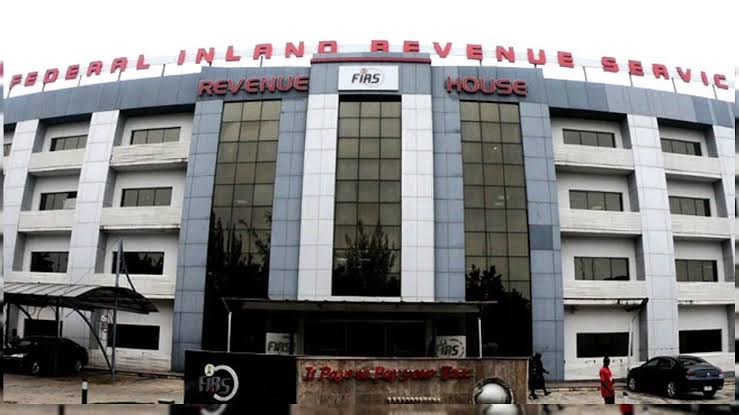Optimizing Tax for High-Net-Worth Individuals

The Nigerian government through the Federal Inland Revenue Service must address its revenue generation capacity, severely impacted by the significant decline in crude oil production and prices.
Prominent manifestations of the extent of the challenges associated with the declined revenue profile of the country are numerous and include government’s inability to pay contractors for jobs already completed, non-payment of salaries of employees of government, deteriorating socio-economic infrastructure, rising wave of crime and insecurity in the society. The situation has even been compounded by its worst economic crisis in a generation.
Many suggestions have been offered towards generating improved income for the country and such proposals include diversification of the mono-product crude oil economy into agriculture, mining of minerals, non-oil exports and a host of others.
My recent survey among professionals unequivocally indicate that the government should also focus on examining the tax payments of high net-worth individuals in the country as a potential source of additional revenue generation. This recommendation received strong support, emphasizing the need for a more equitable tax system where the wealthy contribute their fair share to support the country’s economic development
Specifically, participants noted that high-net-worth individuals pay little or no tax when what they pay is either related to the value of resources and assets in the economy they have cornered for themselves or against what public servants pay. Their tax payment was even considered inconsequential given that there is less drive by tax authorities to collect from the wealthy.
There was also the general observation that the government is either afraid of these high-net-worth individuals or it does not have the courage to direct its tax payment light towards them. Thus, the government was admonished to summon the courage to levy on and collect from the wealthy in Nigeria, appropriate and commensurate tax. By so doing, the government will improve its revenue earnings and be in a position to meet its financial obligations.
The payment of inconsequential or no tax by wealthy individuals in Nigeria is, no doubt, an aberration. But without exaggeration, the hidden hands of corruption, other forms of leakages and weaknesses in enforcement by the government may have played key roles in this situation. Otherwise, how can it be rationalised that those who earn the highest income in the country pay the least or no tax and they are allowed to move freely without any repercussions? To ensure equity and to encourage every taxable individual to be committed to paying tax, higher income earners should pay higher tax.
Incidentally, there are wealthy individuals in both the formal and informal sectors of the country’s economy. While it may be easier to identify and capture in the tax bracket those operating in the formal than the ones in the informal economy, the need to bring in all the high net-worth individuals into the tax pool is a necessity.
Beyond capturing all the wealthy in the tax net, there is also the need for improvement in the way tax laws and regulations are implemented. In this technological age, it will prove exceedingly useful and helpful if the tax authorities across the country reconsider their current manual and even mechanical approaches to tax drive and fully adopt technology ones instead.
Apart from the ease, speed, timeliness, accuracy and security associated with technological modes of handling revenue collection, it will also eliminate, to a large extent, financial leakages in the system. And given that Nigeria is playing catch-up with electronic commerce (e-commerce) where huge volumes of financial transactions are being consummated per second, technology will greatly assist in tracking and capturing tax income.
To ensure that high-net-worth individuals contribute their fair share of taxes, the government should consider reforming the tax system. One approach is to examine the consumption habits of the wealthy and implement targeted taxes on luxury goods and services that are disproportionately appealing to them.
This could include levying taxes on high-end items such as: Luxury vehicles and private jets, High-end real estate and vacation properties, Exclusive travel and hospitality experiences Indeed, indirect taxation, with higher rates on luxury items, can be a veritable way of making the incidence of tax crystalise more on high-net worth persons.
Another area the government may look into is how the wealthy are finding ways to avoid payment of adequate tax. For example, are there tax havens in the country that are serving them? Are such havens legal and legitimate? Why, for instance, is there increasing interest by high-net worth individuals in establishing foundations or tax-exempt entities? Are such foundations purely serving the purposes for which they have been set up? What volume of money passes through them and from what sources? Making proper and non-injurious use of the recently implemented bank verification numbers (BVN) may aid the government in some of these regards.
The tax authorities, nevertheless, face the challenge of not only raising their human and technological capabilities but also the discipline and commitment required for tax collection. They must be able to innovate and strengthen the ways and manners taxes on the wealthy are put in place, implemented, supervised and monitored in order that government derives maximum revenue benefits.
Ifedayo Akinkunmi, ACA, MBA, is a Lagos-based tax specialist





